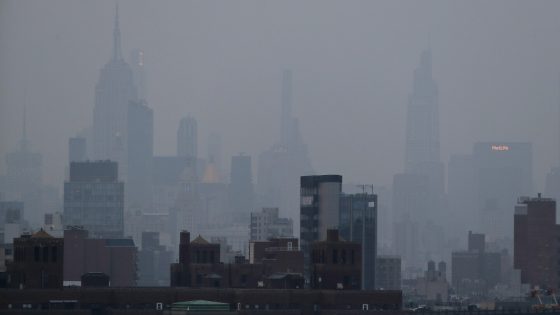On February 6, 2025, twenty-two states filed a lawsuit against New York, claiming that the state’s Climate Change Superfund Act is unconstitutional. The law mandates that major energy producers contribute $75 billion to a fund intended to address climate change damage attributed to their emissions from 2000 to 2018.
- Twenty-two states sued New York over climate law.
- New York's law mandates $75 billion payments.
- West Virginia AG leads the coalition lawsuit.
- Lawsuit claims law is unconstitutional overreach.
- New York accused of blaming energy producers unfairly.
- Coalition includes states like Alabama and Texas.
The coalition of states, led by West Virginia Attorney General JB McCuskey, argues that the law unfairly targets energy companies and could set a precedent for other states to impose similar measures.
The Climate Change Superfund Act was enacted with the intention of holding fossil fuel companies accountable for their contributions to climate change. Under this law, these companies must make payments based on their historical gas emissions over a period of nearly two decades. The lawsuit alleges that this approach unfairly shifts financial responsibility onto a small group of producers while ignoring broader sources of greenhouse gas emissions.
Key points raised in the lawsuit include:
- The act could force energy producers and consumers in other states to subsidize projects within New York.
- The plaintiffs argue it represents governmental overreach and chaos in environmental policy.
- Critics claim that coal, oil, and natural gas have historically supported New York’s infrastructure and economy during the specified time frame.
In response to the lawsuit, representatives from Governor Kathy Hochul’s office expressed confidence in defending the legislation. They view it as essential for addressing climate issues and combating what they describe as corporate influence from “Big Oil.” The outcome of this legal battle may have significant implications for environmental regulation across multiple states.
This legal action highlights tensions between state-level environmental policies and concerns about federalism. As more states consider similar measures, the implications for energy production and regulatory frameworks will likely continue to evolve.
































